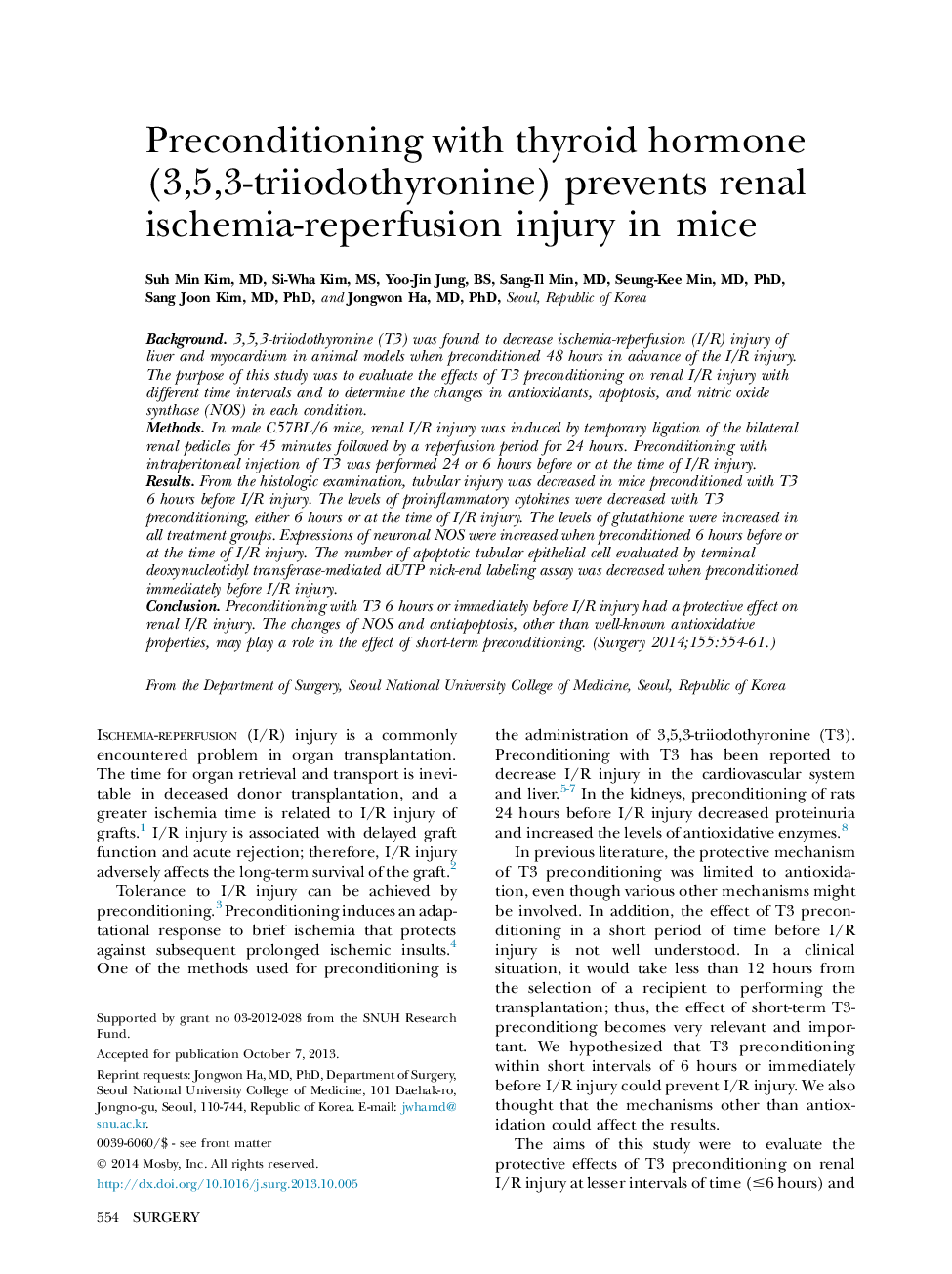| Article ID | Journal | Published Year | Pages | File Type |
|---|---|---|---|---|
| 6255615 | Surgery | 2014 | 8 Pages |
Background3,5,3-triiodothyronine (T3) was found to decrease ischemia-reperfusion (I/R) injury of liver and myocardium in animal models when preconditioned 48 hours in advance of the I/R injury. The purpose of this study was to evaluate the effects of T3 preconditioning on renal I/R injury with different time intervals and to determine the changes in antioxidants, apoptosis, and nitric oxide synthase (NOS) in each condition.MethodsIn male C57BL/6 mice, renal I/R injury was induced by temporary ligation of the bilateral renal pedicles for 45 minutes followed by a reperfusion period for 24 hours. Preconditioning with intraperitoneal injection of T3 was performed 24 or 6 hours before or at the time of I/R injury.ResultsFrom the histologic examination, tubular injury was decreased in mice preconditioned with T3 6 hours before I/R injury. The levels of proinflammatory cytokines were decreased with T3 preconditioning, either 6 hours or at the time of I/R injury. The levels of glutathione were increased in all treatment groups. Expressions of neuronal NOS were increased when preconditioned 6 hours before or at the time of I/R injury. The number of apoptotic tubular epithelial cell evaluated by terminal deoxynucleotidyl transferase-mediated dUTP nick-end labeling assay was decreased when preconditioned immediately before I/R injury.ConclusionPreconditioning with T3 6 hours or immediately before I/R injury had a protective effect on renal I/R injury. The changes of NOS and antiapoptosis, other than well-known antioxidative properties, may play a role in the effect of short-term preconditioning.
